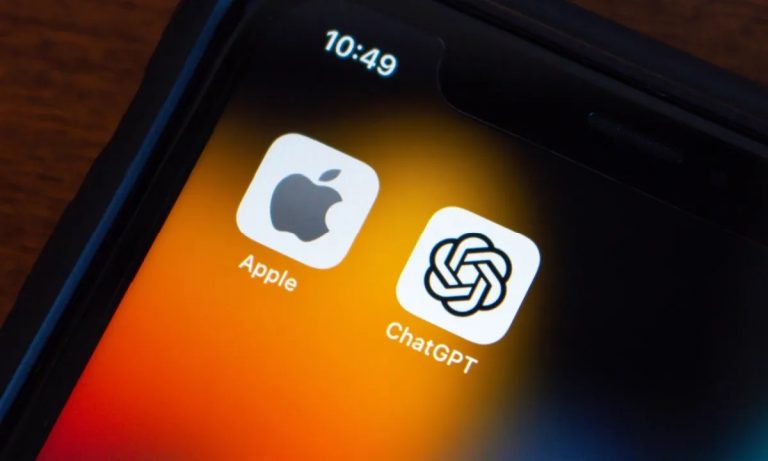
Apple and OpenAI have successfully concluded a deal to integrate OpenAI’s generative AI technology into Apple’s software ecosystem, marking a significant milestone for both companies.
This development was reported by The Information, citing a source familiar with discussions between OpenAI CEO Sam Altman and Apple.
According to The Information, Altman has long aimed to secure a partnership with Apple, envisioning substantial benefits for OpenAI. “Now, [Altman] has fulfilled a longtime goal by striking a deal with Apple to use OpenAI’s conversational artificial intelligence in its products, which could be worth billions of dollars to the startup if it goes well,” stated the source.
Register for Tekedia Mini-MBA edition 19 (Feb 9 – May 2, 2026): big discounts for early bird.
Tekedia AI in Business Masterclass opens registrations.
Join Tekedia Capital Syndicate and co-invest in great global startups.
Register for Tekedia AI Lab: From Technical Design to Deployment (next edition begins Jan 24 2026).
This collaboration is expected to bring generative AI capabilities to a broad range of Apple products, potentially transforming user experiences with advanced conversational AI features.
Despite the promising prospects, the deal has faced internal opposition within Apple. John Giannandrea, Apple’s head of machine learning, has reportedly been resistant to integrating large language model-driven chatbots into Apple’s products. Giannandrea’s stance stems from a belief that AI chatbots might not align with Apple’s user-centric design philosophy. He was quoted telling Apple employees, “the last thing people needed was another AI chatbot.”
However, this does not entirely rule out AI’s integration into Apple products. There are multiple ways to incorporate large language models without necessarily creating standalone chatbots. For instance, Apple has been experimenting with OpenAI’s API to enhance Siri, enabling it to respond to a broader array of queries. The plan is to clearly indicate when responses come from a third party like OpenAI, akin to how Siri currently refers users to Google for certain searches.
Concerns from Microsoft
The deal has also raised concerns at Microsoft, a major investor in OpenAI. Microsoft CEO Satya Nadella reportedly expressed apprehension about what the Apple deal could mean for Microsoft’s existing relationship with OpenAI. Microsoft has invested $13 billion in OpenAI, securing a portion of its profits and incorporating its technology into various Microsoft products.
Nadella recently met with Altman to discuss the implications of the Apple agreement. The nature and outcomes of these discussions have not been disclosed, but they highlight the concern of Microsoft over OpenAI’s partnerships within the tech industry.
Interestingly, Apple is also rumored to be in talks with Google for a similar AI integration deal. This could lead to Apple offering users a choice of AI chatbot providers, mirroring its approach to search engines and default browsers. Such a move would emphasize Apple’s commitment to providing flexible and user-oriented solutions while leveraging the best technologies available.
The successful negotiation with Apple is one of several recent achievements solidifying Sam Altman’s leadership within OpenAI, especially following an attempted ouster. Altman’s influence has been further reinforced by ongoing discussions about restructuring OpenAI.
OpenAI operates under a unique structure, with a for-profit entity controlled by a nonprofit organization. However, Altman and his allies are reportedly advocating for a shift to a more conventional structure, such as a traditional for-profit corporation or a benefit corporation (B-Corp). B-Corps are designed to balance profit with social and environmental goals, providing legal protection for corporations to pursue objectives beyond shareholder returns. This change could offer a compromise between the current setup and a full for-profit model.



